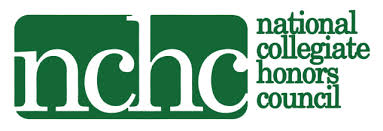Legacy of Plastics
Legacy - HNRS 1120
Instructor(s): Bethany Jorgensen
Course Description
From the deepest oceans to the highest mountain peaks, plastics pollution continues to be found everywhere we look for it, including in the water we drink, food we eat, air we breathe, and inside our bodies. This is no surprise, as nearly every aspect of our lives is now tied to plastics. Plastics pollution begins with the fossil fuel extraction required to create plastics, occurs throughout plastics production, manufacture and use, and continues as plastics persist well beyond their use-life, accumulating even as they fragment into ever-smaller micro- and nanoplastics in the environment. While plastics offer us many benefits, we are learning they come with high costs for our bodies, communities, cultures, the greater community of life, and the socioecological processes upon which we all rely. For this reason, we can think of plastics as one of the biggest environmental justice issues of our time.
This course explores our tangled social and environmental relationships with plastics and uses plastics as a lens for tracing the complex dynamic systems shaping our planet and our lives. During the course we will use systems thinking, political ecology, and environmental justice frameworks to explore the plastics lifecycle; understand plastics' socioecological impacts; critique a wide range of efforts at plastics governance ranging from local to global; and get creative about intervening in the plastics pollution system and imagining post-plastics paradigms.
We will begin by reading Donella Meadow’s (2008) Thinking in systems: a primer, to get our systems-thinking bearings. We will complement this with a few of the leading peer-reviewed articles synthesizing the current state of scientific understanding of plastics pollution. From there, we will dive into Max Liboiron’s (2021) case study of plastic pollution in North America, Pollution is colonialism, to explore the ways in which colonialism shapes contemporary understandings of "pollution" and the implications for environmental justice, along with anticolonial scientific practices aligned with Indigenous concepts of land, ethics, and relations.
As we shift to thinking about plastics governance, we will read Samantha MacBride's (2013) Recycling reconsidered: The present failure and future promise of environmental action in the United States, followed by Krasny and Tidball's (2015) Civic ecology: Adaptation and transformation from the ground up.
Throughout the course, we will analyze the political ecology of the relationships that shape our lives and the places we live. We will experiment through a course-long project focused on developing, implementing, and evaluating locally-based, personally meaningful interventions in the plastics pollution system. In this way, we will connect the theoretical lenses of systems thinking, political ecology, and environmental justice with our lived material relationships while designing and taking actions that give us the grounds for hope, all with the intention of seeking pathways to move us beyond the plastics paradigm.
We will extend our learning outside the classroom, for example by practicing our plastic pollution system mapping skills by venturing across UNM's campus, and taking field trips to explore the Rio Grande Bosque, tour the BARCO Recycling center, and visit with the City of Albuquerque's Solid Waste Management Dept, to name a few.
Texts
Geyer, R., Jambeck, J. R., & Law, K. L. (2017). Production, use, and fate of all plastics ever made. Science advances, 3(7), e1700782.
Krasny, M. E., & Tidball, K. G. (2015). Civic ecology: Adaptation and transformation from the ground up. MIT Press.
Liboiron, M. (2021). Pollution is colonialism. Duke University Press.
MacBride, S. (2013). Recycling reconsidered: The present failure and future promise of environmental action in the United States. MIT Press.
Meadows, D. H. (2008). Thinking in systems: a primer. Chelsea Green Publishing.
MICRO international conference series: http://micro.infini.fr/
Scientists' Coalition for an Effective Plastics Treaty: https://ikhapp.org/materials/
Requirements
- Thoughtful engagement with the assigned texts;
- Completing a weekly 1-page free-form reflection on the materials for the week (Get creative if you wish; your reflection can range from a written synthesis to a poem to a sketch to an image collage etc.);
- Completing the mini-assignments throughout the course that will bring us step-by-step through the process of designing, implementing, and evaluating a locally-based, personally meaningful intervention in the plastics pollution system.
About the Instructor(s): Bethany Jorgensen
Dr. Bethany Jorgensen has been working to address plastic pollution for the past 15 years. She is a founding organizer of the biennial international MICRO conference series on plastic pollution from macro to nano, which will be celebrating its 5th edition this September 2024. She is an active member of the Scientists Coalition for an Effective Plastics Treaty. Her research focus includes developing novel community-based methods for sustainability science, particularly related to plastics.



Social Media
For news, information, prizes and more fun stuff follow us on our social media!
Honors College Resources